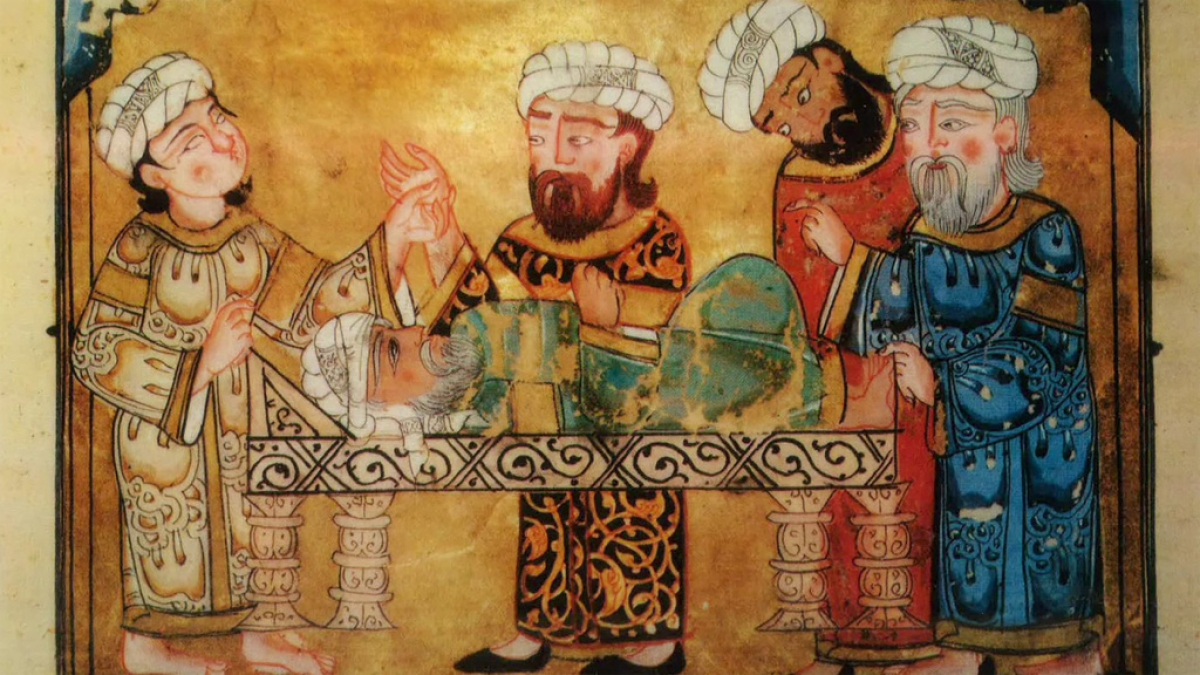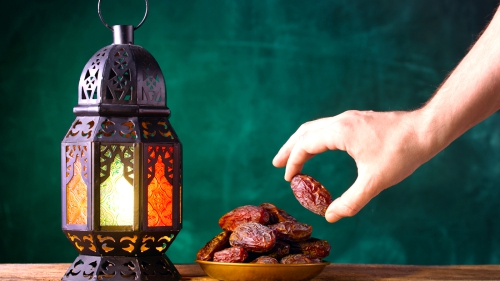The Best Gift From God

The best gift from God is good health. Everyone should reach that goal by preserving it for now and in the future. (Saying of the Prophet Muhammad on health).
In few areas did science, community benefit and religious duty come so closely and productively together in early Islam as they did in medicine.
The Prophet Muhammad frequently emphasized the importance of good health and healthy eating. He also encouraged people to seek medical treatment, and is reported to have said: 'Make use of medical treatment for God has not made a disease without appointing a remedy for it, with the exception of one disease old age.' And by his emphasis on charitable works, one of Islam's foundational pillars, he encouraged doctors to provide care for the sick, and the wealthy to pay for it.
There were practical reasons for promoting medical science, too, of course, in the new empire. Battle wounds were all too common, for example, as were diseases of the digestive system and infections transmitted, much as happens today, by the movement of people across borders, and into the new Islamic cities such as Baghdad. Yet empires had needed medical science before and had not provided it. What perhaps made Islam different at the time was the willingness of richer people to pay for healthcare, whether for religious, social or political reasons. Also important was the sense of religious duty that drew many people into the medical profession as well as the excitement of the search for knowledge and the prospect of a lucrative career.
Of course, there were many charlatan doctors and quacks, but there were also several dedicated physicians. Some were at the very cutting edge of research and practice. Others just did the best they could with the tools at their disposal. The combined result is that die peoples of the Islamic empires perhaps had medical care which was as good as, if not better than, that of any empire that had gone before.
It would be inappropriate to compare the range and effectiveness of medical treatments in earlier times to what we have in die modern world. Nor did the Islamic world create the first hospitals. However, hospitals were advanced for their day, and doctors of the Islamic era often provided effective treatments. What is also clear is that the medicine that originated in Islamic times penetrated deep into Europe in the following centuries, perhaps more so than any other Islamic science. A whole range of books by physicians and surgeons such as Hunayn ibn Ishaq, ibn Sina and al Zahrawi were in widespread use in the universities of Europe for many centuries. Their popularity only waned after the main basis of their theories, the idea of the four humours (four temperaments of human body), was superseded by the germ theory of disease.
The Greek legacy
At the start of the Islamic era, various traditions of medicine were in use in addition to those of Arabia and, together, they served the growing cities of the empire. At Gundeshapur in Sassanian Persia, for instance, Persians and Nestorian Christian refugees from the Byzantine empire had founded a respected medical school. Some of these physicians moved to Damascus and Baghdad to establish elite medical dynasties there. But the biggest influence by far was Hellenistic the medicine of the Greeks, which today is still practiced in large parts of South Asia, and is known by the name Unani, which means 'Greek'.
Ancient Greek medical ideas became central to mainstream Islamic medicine, and when the translation movement got under way, there was a rush to translate as much of the work of the great Greek medical authorities as possible into Arabic.
One of the prize Greek medical sources was De Materia Medica, written in the 1st century by a Greek surgeon serving in the Roman army called Dioscorides. Dioscorides' book became the main source on drugs and on the herbs from which they could be extracted. But the most influential by far of the Greek physicians who worked for Rome was Galen, whose voluminous writings covered the entire field of medicine and provided a complete background in theory and practice for any physician.
Born in Pergamon in Turkey, Galen went to Rome as a young man, where his skills as a physician soon found him in the service of the emperor, and where he gained a reputation that made him the greatest authority in Western medicine for nearly 1,300 years.
As he was not allowed to dissect human bodies, Galen learned about anatomy from gladiators' wounds and by dissecting apes, sheep, pigs, goats and even elephants. In this way, he learned about the nervous system, and invented a complete system of treatment that remained the standard until just a few centuries ago. Not overtaxed with modesty, he was aware of his huge influence, writing: 'I have done as much for medicine as Trajan did for the Roman empire when he built roads and bridges. It is I, and I alone, who have revealed the true path of medicine. It must be admitted that Hippocrates already staked out this path... but I have made it passable.'
Yet although Galen did study anatomy, the fact is that his anatomical knowledge came as much from animals as humans, and he did make basic errors. Such was his status, though, that a thousand years later many physicians including those from the Islamic era would insist that if Galen said it, it must be true, even if it contradicted the evidence of their own eyes.
Updating Galen
Not all of the Islamic medical scientists, though, were quite so reverential. When early9thcentury scholars like Hunayn ibn Ishaq made the first translations of Galen into Arabic, these quickly became authoritative works on the subject. Yet despite Galen's status, ibn Ishaq's readers began to wonder if Galen was always right about everything. Maybe even the great Greek medic had made mistakes.
We have already seen how Hunayn made a few minor updates to Galen's version of the anatomy of the eye. The first big challenge to Galen, however, came from a Persian medic called al Razi (Rhazes in Latin) about half a century later.
Al Razi, by all accounts, was never one to do things the conventional way. Born in the city of Rayy in 865, he apparently started out as a lute player. Very soon, though, he took up alchemy until, according to some sources, an experiment that went wrong damaged his eyesight. The story continues that after going for medical treatment for his eyes, he decided to take up medicine himself. It may be that he thought he could do a better job than the doctors who were treating him. If so, he was proved right. After excelling in training in Baghdad, he returned to Rayy as director of the city's hospital, where his lectures attracted many students and even patients. For a while, he was also director of the main hospital in Baghdad.
Al-Razi's dilemma
Something of al Razi's character is revealed in the tides of books he wrote such as On The Fact That Even The Most Skillful of Physicians Cannot Heal All Diseases and Why People Prefer Quacks and Charlatans to Skilled Physicians. Like most major scholars of the age., he was a polymath, writing books on a range of disciplines from astronomy to natural history, but it was his medical work that sealed his place in history.
Al Razi's innovations are a roll call of the breadth of medical practice. He identified and described smallpox and measles, and his book on these two diseases was influential up until the 19th century. He also wrote one of the most important and comprehensive books about clinical practice which was called, in typically straight forward fashion, al Hawy, which means Comprehensive Book. It ran to 23 volumes and was an encyclopedia of Greek, Syriac, Persian, Indian and even Chinese medicine. And he discovered that fever is part of the body's defenses.
Just as he had challenged his tutors as a student, al Razi was also prepared to challenge the great Galen, writing, in his book Doubts about Galen, 'It grieves me to oppose and criticize the man, Galen, from whose sea of knowledge I have drawn much indeed ... Although this reverence and appreciation will and should not prevent me from doubting, as I did, what is erroneous in his theories.'
*****
Eshan Masood, is a science writer based in London. Masood writes for Nature and Prospect magazines and also teaches international science policy at Imperial College London. He is a regular panellist on Home Planet on the BBC Radio 4 and also presented 'Islam and Science.' a three part series for Radio 4 on science in today's Islamic world that was broadcast in 2009."
Source: Excerpt from "Science & Islam 'A History' "
Related Suggestions

















